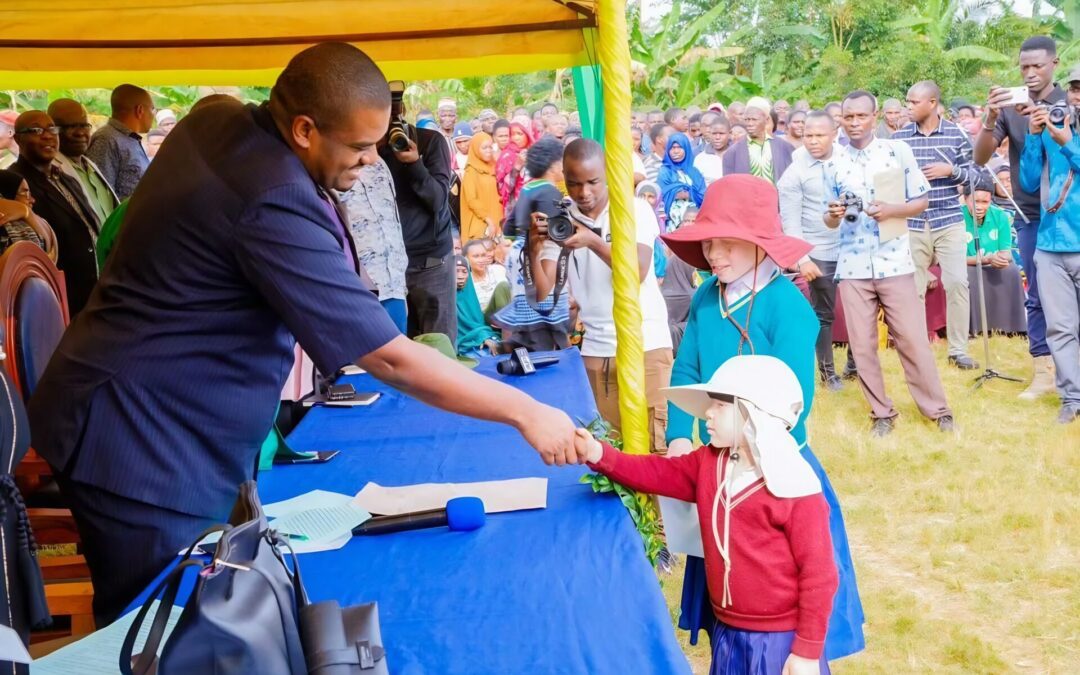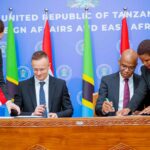Tanzania’s Minister of State has issued an order for a crackdown on unlicensed herbalists and fortune-tellers in order to protect people with albinism.
In a decisive move to safeguard the rights and lives of people with albinism, Tanzania’s Minister of State in the Office of the Prime Minister, responsible for Youth, Employment, and Disability Affairs, Deogratius Ndejembi, has issued a directive to the country’s regional commissioners.

The directive mandates the commencement of a comprehensive operation with the objective of apprehending unlicensed herbalists and alternative medicine practitioners who engage in fortune-telling. This practice has been linked to acts of violence and discrimination against individuals with albinism that are considered heinous.
The Plight of People with Albinism in Tanzania
Albinism is a genetic condition characterised by the absence of melanin, the pigment responsible for the colouration of the skin, hair and eyes. In Tanzania, individuals with albinism are subjected to severe discrimination and frequently experience brutal attacks. The perpetuation of misguided beliefs and superstitions has led to the notion that the body parts of individuals with albinism possess magical properties, which has resulted in their use in witchcraft rituals. This has resulted in a tragic and ongoing crisis, with many individuals with albinism experiencing a pervasive sense of fear for their lives.
The Role of Unlicensed Herbalists and Fortune-Tellers
It is evident that unlicensed herbalists and alternative medicine practitioners, particularly those involved in fortune-telling, play a significant role in perpetuating these harmful superstitions. By purporting to possess paranormal capabilities and advocating the utilisation of bodily components from individuals with albinism in their rituals, they engender the violence and discrimination endured by this vulnerable demographic.
The Tanzanian government has acknowledged the pressing necessity to address this matter and to safeguard its citizens from these malevolent practices.
Minister Ndejembi’s Directive
Minister Deogratius Ndejembi’s directive to the regional commissioners represents a significant advancement in the fight against these harmful practices. The objective of the operation is to identify and apprehend unlicensed herbalists and alternative medicine practitioners who are engaged in activities such as fortune-telling, which endanger the lives of individuals with albinism. By focusing enforcement efforts on these individuals, the government aims to disrupt the networks that perpetuate violence and discrimination.
Implementation of the Operation
The success of this operation will depend on the coordinated efforts of regional commissioners, law enforcement agencies, and community leaders, as these are the key stakeholders whose input will be required to achieve the desired outcome. Regional commissioners have been directed to collaborate closely with local authorities to identify unlicensed practitioners and gather evidence of their involvement in illicit activities. Subsequently, the responsibility for carrying out arrests and ensuring that those apprehended are prosecuted to the fullest extent of the law will fall upon law enforcement agencies.
Community Involvement and Awareness
Furthermore, in addition to the crackdown on unlicensed practitioners, the Tanzanian government acknowledges the significance of community involvement and awareness in addressing this issue. A series of public education campaigns will be initiated with the objective of discrediting the myths and superstitions that surround albinism, while simultaneously promoting the rights and dignity of individuals with albinism. The government’s objective is to cultivate a culture of understanding and acceptance, with the ultimate goal of establishing a safer and more inclusive society for all its citizens.
Support for People with Albinism
Furthermore, the government has pledged to extend support and protection to individuals belonging to the albinism community. This encompasses the provision of healthcare, educational opportunities and employment prospects, in addition to the delivery of legal counsel to those who have been subjected to violence and discriminatory practices. By addressing the underlying causes of the problem and providing comprehensive assistance, the government aims to enhance the quality of life for individuals with albinism and guarantee their safety and well-being.
International Support and Collaboration
The Tanzanian government’s endeavours to safeguard individuals with albinism have attracted global interest and backing. A number of international organisations and human rights groups have expressed their solidarity with Tanzania’s initiatives and have offered assistance in the form of funding, expertise, and advocacy. This collaboration is of paramount importance in enhancing the impact of the government’s endeavours and guaranteeing the protection of the rights of individuals with albinism on a global scale.
Challenges and the Way Forward
Notwithstanding the government’s dedication and the backing of the international community, a number of obstacles persist in the battle against violence and discrimination directed at individuals with albinism. These include deeply entrenched cultural beliefs, limited resources, and the necessity for sustained efforts to ensure long-term change. Nevertheless, the directive issued by Minister Ndejembi signifies a considerable stride forward and evinces the government’s determination to confront these challenges directly.
Conclusion
The directive issued by Tanzania’s Minister of State, Deogratius Ndejembi, to launch an operation against unlicensed herbalists and alternative medicine practitioners involved in fortune-telling is a crucial measure to protect people with albinism from violence and discrimination. The Tanzanian government’s strategy is twofold: firstly, to target those who perpetuate harmful superstitions and, secondly, to foster community awareness. The objective is to create a safer and more inclusive society for all its citizens.
Tanzania Media
- Kanyala Ferry Launch: TEMESA’s New Service for 15,000 Sengerema Residents (Mwanza) - 18 August 2025
- Russia-Tanzania Naval Cooperation: How the Smolny Training Ship Boosts Dar es Salaam’s Maritime Security - 18 August 2025
- Tanzania’s ICGLR Commitment: Stabilising the DRC & Great Lakes Region - 18 August 2025



























